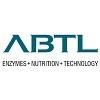The Role of Vitamins as Co-factors and Antioxidants in Immunity and Gut Health
The importance of vitamin nutrition in poultry feeding has been recognized for decades, yet precise vitamin requirements for modern, high producing have not been investigated. Because of their low inclusion rates, vitamins have a relatively small impact on the cost of feed. Many vitamins lose activity over time or under high-temperature feed processing. Vitamins, especially the water-soluble vitamins, are tolerated at many times the established minimum recommended levels. Finally, the standard minimum recommendations published in sources such as the 1994 Nutrient Requirements of Chickens (NRC) are based largely on achieving maximum growth or egg production, rather than the optimization of product yield, quality, or bird health. Therefore commercial nutritionists generally including large safety margins for each vitamin.
Most vitamin requirement studies in poultry were completed before the 1980’s; few classical vitamin requirement studies have been conducted since then. Major advances in efficiency of meat and egg production have changed the context for vitamin nutrition. Increased production efficiency without concomitant increases in vitamin supplementation implies an actual reduction in vitamin intake relative per unit of product produced. The global move towards antibiotic-free poultry meat production, and extended laying cycles for layers increases the importance of the immune system, and gut health in particular. The role of vitamins with particular impacts on immunity and gut integrity (specifically vitamins A, D and E) will be reviewed in the context of opportunities in the face of the challenges of modern poultry production.
This abstract will be presented at the 2021 Animal Nutrition Conference of Canada. Check out all the lectures and speakers here.
More information in https://animalnutritionconference.ca/.




Immune system plays a pivotal role in fighting against pathogenic microbes thereby helping to maintain overall health & well-being of the bird.
Vitamin E also known as a-tocopherol is a natural anti-oxidant, it improves host defence against infectious diseases by improving phagocytic cell activity & provides bird protection against invaded micro-organisms.
Vitamin E in feed reduces negative impact of oxidative stress, thereby maintaining structural & functional integrity of cells.
Vitamin C commonly known as ascorbic acid is a powerful anti-oxidant, that alleviates the physiological consequences of oxidative stress, resulting in immunity enhancement & improved performance.
Vitamin C helps in collagen biosynthesis which is required for bone & skeletal development.
The use of vitamins is necessary in immune promotion.
I'm presently running a field experiment on the use of vitamins, essential oils and improved IBH, ND and Ecoli vaccination on 2 broiler farms located in south West Nigeria.
No antibiotics use after day 4 (brooding stage).
The record is impressive
Just about 1.3% mortality by day 28.
We want to prevent antibiotics residue, AMR and improve food safety
Dr. Adebayo Awoyele





.jpg&w=3840&q=75)


















